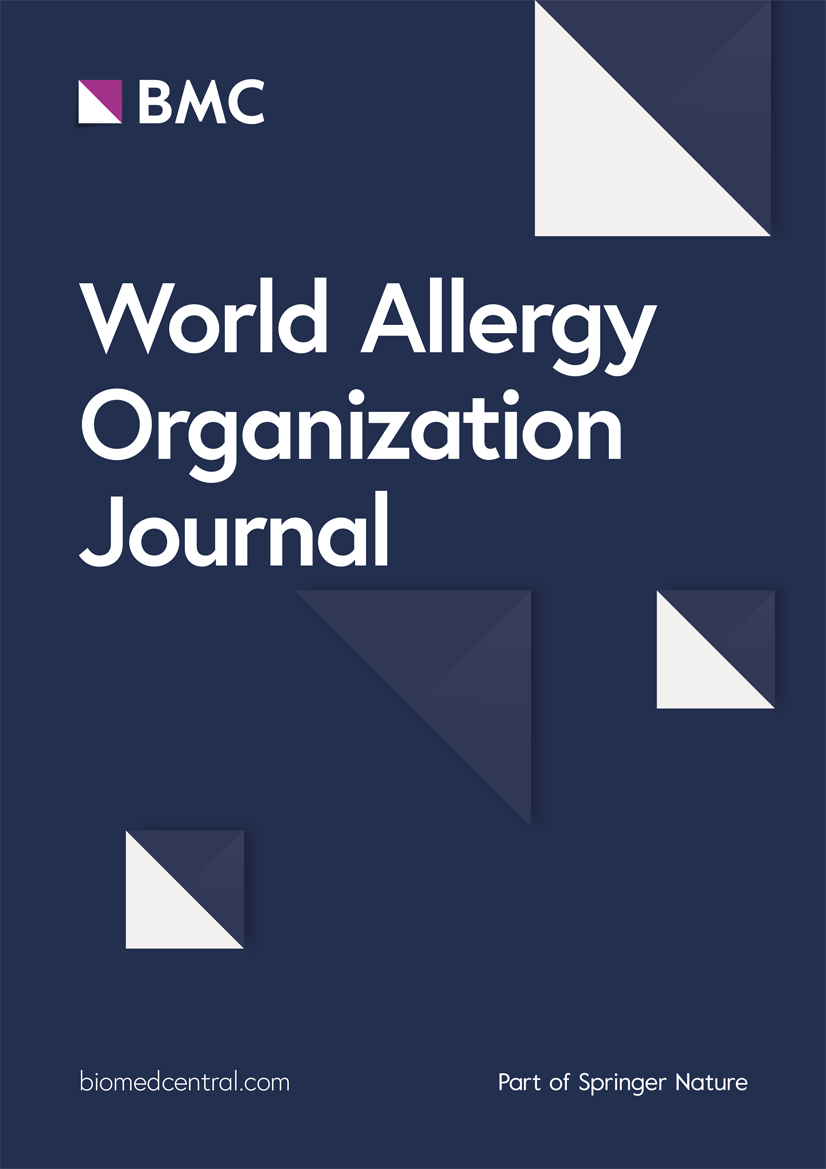剖析吸烟在血液 DNA 甲基化中对过敏性疾病的致病作用
IF 3.9
2区 医学
Q2 ALLERGY
引用次数: 0
摘要
背景哮喘和过敏性鼻炎等过敏性疾病是全球面临的重大健康挑战。方法我们利用FinnGen数据库中的数据进行了双样本孟德尔随机化(MR)分析,研究吸烟行为与各种过敏性疾病之间的关系。此外,我们还研究了 DNA 甲基化(CpG 位点)与过敏性疾病的关系,并将 mQTLs 作为表观遗传学的替代物。结果在我们的基因组磁共振分析中,发现吸烟行为(如开始吸烟和每天吸烟数量)与哮喘风险的增加存在因果关系。此外,有提示性证据表明,开始吸烟与特应性接触性皮炎有关。我们的表观遗传 MR 分析发现,通过 mQTLs 评估的 46 个 CpG 位点的甲基化变化与哮喘风险显著相关。值得注意的是,cg17272563(PRRT1)、cg03689048(BAT3)、cg20069688(STK19)和 cg20513976(LIME1)被确定具有交叉过敏效应。我们的研究强调了吸烟行为与过敏性疾病(尤其是哮喘)之间在遗传和表观遗传方面的关联。我们发现了几个与 DNA 甲基化相关的 CpG 位点,如 cg03689048(BAT3)、cg17272563(PRRT1)和 cg20069688(STK19),这些位点显示了跨过敏潜能和反向因果关系。本文章由计算机程序翻译,如有差异,请以英文原文为准。
Dissecting the pathogenic effects of smoking in blood DNA methylation on allergic diseases
Background
Allergic diseases, such as asthma and allergic rhinitis, present significant health challenges globally. Elucidating the genetic and epigenetic foundations is crucial for developing effective interventions.
Methods
We performed two-sample Mendelian Randomization (MR) analyses to investigate the associations between smoking behaviors and various allergic diseases, leveraging data from the FinnGen database. Additionally, we examined the relationships of DNA methylation (CpG sites) with allergic diseases, employing mQTLs as epigenetic proxies. Furthermore, we conducted reverse MR analyses on CpG sites that exhibited cross-allergic disease effects.
Results
In our genomic MR analysis, smoking behaviors such as smoking initiation and the number of cigarettes smoked per day were identified to be causally associated with an increased risk of asthma. Additionally, there was suggestive evidence linking smoking initiation to atopic contact dermatitis. Our epigenetic MR analysis found that methylation changes at 46 CpG sites, assessed via mQTLs, were significantly associated with asthma risk. Notably, cg17272563 (PRRT1), cg03689048 (BAT3), cg20069688 (STK19), and cg20513976 (LIME1) were identified with cross-allergic effects. Crucially, reverse MR analysis substantiated these associations.
Conclusions
Our study has highlighted the associations between smoking behaviors and allergic diseases in the genetic and epigenetic landscape, notably asthma. We identified several DNA methylation-related CpG sites, such as cg03689048 (BAT3), cg17272563 (PRRT1), and cg20069688 (STK19), which demonstrate cross-allergic potential and reverse causal relationships.
求助全文
通过发布文献求助,成功后即可免费获取论文全文。
去求助
来源期刊

World Allergy Organization Journal
Immunology and Microbiology-Immunology
CiteScore
9.10
自引率
5.90%
发文量
91
审稿时长
9 weeks
期刊介绍:
The official pubication of the World Allergy Organization, the World Allergy Organization Journal (WAOjournal) publishes original mechanistic, translational, and clinical research on the topics of allergy, asthma, anaphylaxis, and clincial immunology, as well as reviews, guidelines, and position papers that contribute to the improvement of patient care. WAOjournal publishes research on the growth of allergy prevalence within the scope of single countries, country comparisons, and practical global issues and regulations, or threats to the allergy specialty. The Journal invites the submissions of all authors interested in publishing on current global problems in allergy, asthma, anaphylaxis, and immunology. Of particular interest are the immunological consequences of climate change and the subsequent systematic transformations in food habits and their consequences for the allergy/immunology discipline.
 求助内容:
求助内容: 应助结果提醒方式:
应助结果提醒方式:


